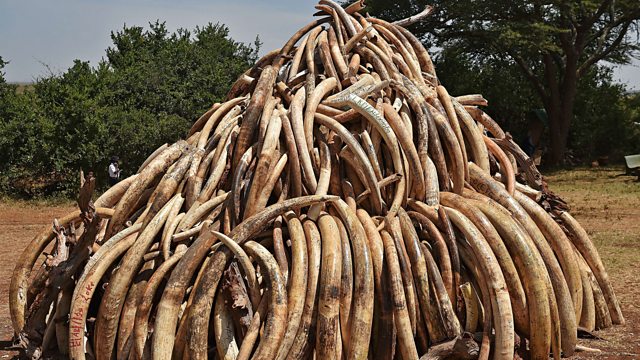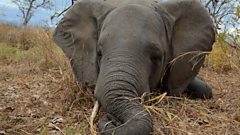Poo Points to Poaching Hotspots
Dung points to African elephant poaching hotspots, testing for TB in badger poo, science spin-offs of the Comprehensive Nuclear Test Ban Treaty Organisation, New antimalarial drug
Elephant poaching is on the rise. Worst hit is the African elephant β with 51,000 reportedly killed for their ivory in 2013. New research in the journal Science has shown that the poaching is not localised and scattered throughout Africa. But rather concentrated in two main hotspots β notably Tanzania and into Mozambique, and the Tridom protected ecosystem (Tri-national Dja-Odzala-Mikebe) that includes part of Gabon, DRC, Cameroon and the adjacent Dzanaga reserve in Central African Republic. Conservation biologist, Dr Sam Wasser, at the University of Washington in the US came to these conclusions after analysing the DNA in the seized ivory, and then matching it to elephant material found in their dung, to tie the elephantβs origin back to one particular place.
Testing for TB in Badger Poo
Catching European badgers to test for the presence of tuberculosis (TB) bacteria can be tricky. These animals are nocturnal and can be aggressive when threatened. But scientists at the University of Warwick in the UK have carried out rigorous comparison tests and discovered that you can get the information you need about TB in badgers by analysing their droppings. Rather than having to catch them and take samples from their nose and throats the scientists had something far more accessible. Luckily badgers use a latrine, a common toilet area just outside their setts β so it is not hard to find, and this provided the perfect source of samples for their work.
Effects of Stress on Endangered Tiger Populations
Tiger populations are still under pressure from hunting and habitat loss, and reintroducing the species into suitable areas is one way conservationists are attempting to increase their numbers. Indian scientists have been sifting through big cats looking for traces of stress hormones, and their findings suggest that human conflicts might be responsible for a lack of breeding success.
Viral Resistance in Chimpanzees
A team, led by scientists from Stanford University have shown that the immune system of animals where HIV-like infection is rife have striking genetic changes; similar to that seen in people resistant to the effects of HIV. Discovered by analysing chimp faeces, it shows just how much the genetic diversity in animal populations might be shaped by infection.
Science Spin-offs of the Comprehensive Nuclear Test Ban Treaty Organisation
The Comprehensive Nuclear-Test-Ban Treaty Organization (CTBTO) has a massive global monitoring network set up to detect nuclear explosions and guard against test ban treaty violations. The system is now also being used as a βgiant stethoscope that is looking, listening, feeling and sniffing for planetary irregularitiesβ collecting seismic, infrasound, hydro-acoustic and radionuclide data. It is the only global network which detects atmospheric radioactivity and sound waves which humans cannot hear.
New Potential Antimalarial Drug
The malaria parasite, transmitted by mosquitoes, has developed resistance to many of the current drugs, including a growing resistance to Artemisinin. So there is excitement at the news that researchers have found a new compound that is showing great promise at tackling the killer disease. The compound β DDD107498 β affects protein synthesis in the pathogen, which means that it affects many of the life-stages of malaria when it is in its human host. Therefore it can be given in one single dose. It is also proving in mouse models to have prophylactic effects as well as being able to treat the disease. The Medicines for Malaria Venture have taken the drug that was discovered by scientists at the Drug Discovery Unit at the University of Dundee in Scotland, with the aim to set up human trials within a year. If it is successful, it could be available within five years at a cost of $1 per treatment.
(Photo: A pile of 15 tonnes of elephant ivory seized in Kenya is displayed at Nairobi National Park, 2015. Credit: Carl de Souza/AFP/Getty Images)
Last on
More episodes
Clip
-
![]()
Elephant poo points to poaching hotspots
Duration: 00:58
Broadcasts
- Thu 18 Jun 2015 18:32GMTΒιΆΉΤΌΕΔ World Service Online
- Thu 18 Jun 2015 23:32GMTΒιΆΉΤΌΕΔ World Service Online
- Fri 19 Jun 2015 04:32GMTΒιΆΉΤΌΕΔ World Service Online
Podcast
-
![]()
Science In Action
The ΒιΆΉΤΌΕΔ brings you all the week's science news.



